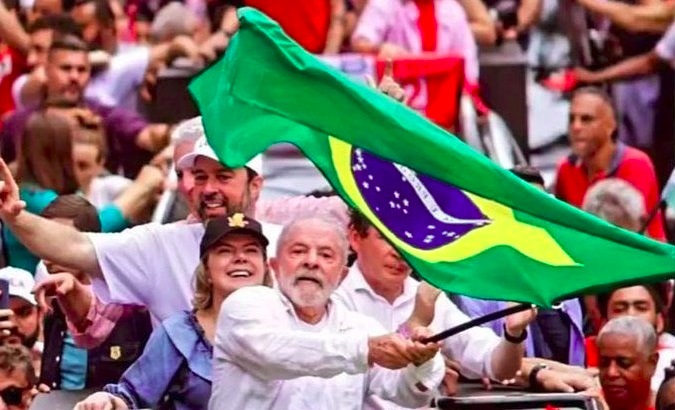The world may have to recalibrate its strategy to deal with the left leaning government in Brazil.
The recently concluded national election in Brazil has thrown up very interesting results, where Luiz Inacio Lula da Silva, commonly called “Lula” has been given the mandate by the people of Brazil to occupy the seat of power as President. Lula has enough time before him to adorn the mantle of power on 1 January 2023. The incumbent Jair Bolsonaro will have to pass the baton and accept the reality with humility. As a customary requirement in Brazil, Bolsonaro also would need to tell his countrymen about his defeat and accept Lula as the victorious candidate. Lula secured 50.8% vote, whereas Bolsonaro secured 49.2%. The winning margin for President-elect Lula may look thin. However, it had become clear domestically that the people of Brazil were looking for change. The onset of the pandemic and the way it was handled perhaps became a dominant factor in the mind of the civil society. The belief lingered that these issues needed a far better attention in terms of dealing with the situation, and in terms of the number of casualties Brazil witnessed because of the Covid-19 pandemic. Instead of addressing the matter with caution and seriousness, President Bolsonaro declared formally that Covid-19 vaccines may cause HIV. When the rest of the world was encouraging people to get vaccinated, Bolsonaro was indulging in spreading disinformation, which built up dissatisfaction among the masses.
The public opinion built over this period added to the anti-incumbency. There were also signs that Brazil was moving towards a path of instability. Although Lula has been President in the past for two terms continuously in the period of 2003-2010 and has got all the requisite experience and exposure, it is certainly not going be smooth sailing for him this time. Brazil is being confronted with a number of challenges domestically. The high rate of inflation, rise in unemployment, debt crisis, uneven savings and investments ratio and more importantly low quality infrastructure, education and health will require serious attention for leading Brazil to a path of progress and prosperity. How to save the Amazon and the stance on free speech will feature as the preferred strategy to safeguard Brazil’s environmental security and to maintain the democratic fabric of the society.
The rise of President-elect Lula once again suggests that a tilt towards the left-leaning orientation was emerging among Brazil’s populace. It must be emphasized that Lula’s victory was preceded by the formation of leftist governments in Mexico, Argentina, Chile, Peru and Colombia. It has been estimated that 90% of Latin America will be led by governments with left orientations.
The rise of Lula from a shoe-shiner and street vendor to President-elect shows his passion and dedication to be an agent of change in Brazil. He had joined the labour movement way back and rose to occupy the seat of power. Brazil is a Presidential Representative Democratic Republic where the President becomes both head of state and head of government.
Lula is the founder of the left wing Workers’ Party, which was established in 1980. As his political ambition grew, he contested the election to become the governor of Sao Palo in 1982. Though he lost but his ambitions to become actively involved in national politics got strengthened. He made his first bid to become Brazil’s working class President in 1989 and was unsuccessful. He lost two of his presidential bids in 1994 and 1998, respectively. His first success came in 2002 and he came to power on 1 January 2003 as the President of Brazil. His two terms of Presidency had given Brazil a new look where it not only became stronger from within but also figured prominently on the global horizon where its potential as a respectable player in the international system was recognized. Brazil’s voice was being heard at global forums. The economy of Brazil also rose and had become sixth largest in the world.
Lula left his seat of power in 2010 and refused to run for a third consecutive term. The situation had gone from bad to worse when his party got embroiled in a number of corruption charges. Lula himself was convicted in 2017 of corruption charges and was jailed in 2018. He was absolved of all charges against him by the Supreme Court in 2021, which paved the way for Lula to contest for the post of the President again.
The rest of the world in general and India in particular have been watching these developments and certainly would be interested in recalibrating their strategies in dealing with the left leaning government in Brazil. India had maintained a very constructive engagement with Brazil during Lula’s two terms of presidency. Lula was invited as the chief guest of India’s Republic Day parade thrice in the past when he was President.
India and Brazil will have to chart out a plan of action and see how it could prove mutually beneficial. The strategic core areas such as defence, outer space, aircraft manufacturing, ship building should be given priority to enhance their bilateral cooperation. It is high time both India and Brazil considered elevating the ongoing deliberations at India-Brazil Joint Commission to the level of strategic partnership with well enshrined goals and objectives. Geopolitically, India-Brazil strategic cooperation will remain important and mutually rewarding.
Dr Arvind Kumar is Professor at School of International Studies, Jawaharlal Nehru University (JNU), New Delhi.

